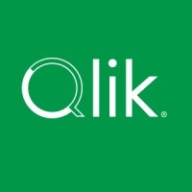

Find out in this report how the two Cloud Data Integration solutions compare in terms of features, pricing, service and support, easy of deployment, and ROI.


| Company Size | Count |
|---|---|
| Small Business | 37 |
| Midsize Enterprise | 10 |
| Large Enterprise | 43 |
| Company Size | Count |
|---|---|
| Small Business | 3 |
| Midsize Enterprise | 3 |
| Large Enterprise | 6 |
Elasticsearch is a prominent open-source search and analytics engine known for its scalability, reliability, and straightforward management. It's a favored choice among enterprises for real-time data search, analysis, and visualization. Open-source Elasticsearch is free, offering a comprehensive feature set and scalability. It allows full control over deployments but requires managing and maintaining the infrastructure. On the other hand, Elastic Cloud provides a managed service with features like automated provisioning, high availability, security, and global reach.
Elasticsearch excels in handling time-sensitive data and complex search requirements across large datasets. Its scalability allows it to handle growing data volumes efficiently, maintaining high performance and fast response times. Integrated with Kibana, Elasticsearch enables powerful data visualization, providing real-time insights crucial for data-driven decision-making.
Elastic Cloud reduces operational overhead and improves scalability and performance, though it comes with associated costs. It is available on your preferred cloud provider — AWS, Azure, or Google Cloud. Customers who want to manage the software themselves, whether on public, private, or hybrid cloud, can download the Elastic Stack.
At its core, Elasticsearch is renowned for its full-text search capabilities, capable of performing complex queries and supporting features like fuzzy matching and auto-complete.
Peer reviews from various professionals highlight its strengths and weaknesses. Pros include its detection and correlation features, flexibility, cloud-readiness, extensibility, and efficient search capabilities. However, users have noted challenges like steep learning curves, data analysis limitations, and integration complexities. The platform is generally viewed as stable and scalable, with varying degrees of satisfaction regarding its usability and feature set.
In summary, Elasticsearch stands out for its high-speed search, scalability, and versatile analytics, making it a go-to solution for organizations managing large datasets. Its adaptability to different enterprise needs, robust community support, and continuous development keep it at the forefront of enterprise search and analytics solutions. However, potential users should be aware of its learning curve and the need for skilled personnel for optimization.
Qlik Sense is a powerful business intelligence tool that offers a range of features to help organizations make faster and more informed decisions. Its primary use cases include operational and financial dashboards, self-service reporting, and centralized access to cross-functional reports. The solution is praised for its mobile platform, ease of use, data-sharing capabilities, and extensibility.
Qlik Sense has helped organizations improve data literacy, reduce time consumed in complex reports, and provide widely available MI to senior stakeholders. It also enables self-service analytics, improves data quality and governance, enhances collaboration, and reduces costs.
We monitor all Cloud Data Integration reviews to prevent fraudulent reviews and keep review quality high. We do not post reviews by company employees or direct competitors. We validate each review for authenticity via cross-reference with LinkedIn, and personal follow-up with the reviewer when necessary.